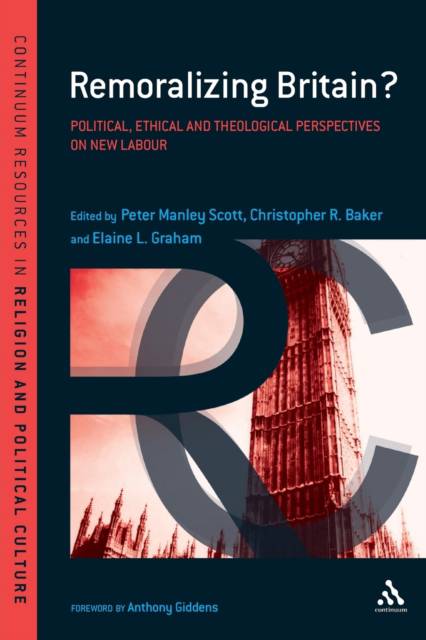
- Afhalen na 1 uur in een winkel met voorraad
- Gratis thuislevering in België vanaf € 30
- Ruim aanbod met 7 miljoen producten
- Afhalen na 1 uur in een winkel met voorraad
- Gratis thuislevering in België vanaf € 30
- Ruim aanbod met 7 miljoen producten
Zoeken
Remoralizing Britain?
Political, Ethical and Theological Perspectives on New Labour
€ 98,45
+ 196 punten
Omschrijving
On seeking office and in coming to power, New Labour presented its vision for Britain in moral terms. During the course of the New Labour administration, further moral themes have been introduced: responsibility and respect, the merits of local government and self-governance, and the moral imperative to confront threats of 'terror' from abroad. This moral agenda, with its apparently religious roots, has been much noted, but not much discussed. The political phenomenon of New Labour requires the disciplines of theology and ethics, as well as social theory and politics, to be properly understood and assessed. Drawing together for the first time theorists from a range of disciplines and commitments, this interdisciplinary collection offers a reckoning of this New Labour decade. As such, it has four central research questions: What is the nature of this remoralising? What are its sources? How effective has it been and what difference has this moral discourse made? What can be learned from Blairism about the relationship between faith, morals and governance?
Specificaties
Betrokkenen
- Uitgeverij:
Inhoud
- Aantal bladzijden:
- 280
- Taal:
- Engels
- Reeks:
Eigenschappen
- Productcode (EAN):
- 9780826424655
- Verschijningsdatum:
- 31/05/2009
- Uitvoering:
- Paperback
- Formaat:
- Trade paperback (VS)
- Afmetingen:
- 152 mm x 229 mm
- Gewicht:
- 408 g

Alleen bij Standaard Boekhandel
+ 196 punten op je klantenkaart van Standaard Boekhandel
Beoordelingen
We publiceren alleen reviews die voldoen aan de voorwaarden voor reviews. Bekijk onze voorwaarden voor reviews.







